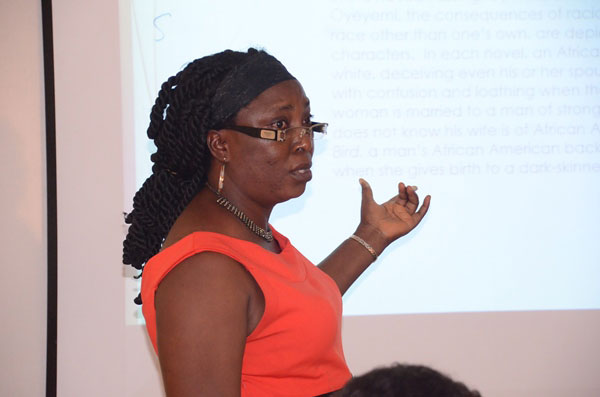SAS Researchers Probe Racial Passing, Identity Based on Two NovelsPosted in Africa, Articles, Literary/Artistic Criticism, Media Archive, Passing, United States on 2017-05-11 01:18Z by Steven |
SAS Researchers Probe Racial Passing, Identity Based on Two Novels
American University of Nigeria
2017-05-01
Nelly Ating
The modern-day issues of “racial passing” and “identity,” dominated the April 20 SAS research seminar presented by Dr. Agatha Ukata and Dr. Brian Reed of the English & Literature department.
The duo’s research probes the phenomenon in “Being and Not Being: How Society Negotiates Humanity.” This is a study based on Nella Larsen, and Boy, Snow, Bird by Helen Oyeyemi, and on Isidore Okpewho’s Call Me by My Rightful Name.
This work will be presented at the African Literature Association conference at Yale University in June.
Leading the discussion, Dr Ukata said that despite disparity in the years of publication of the novels, it is astonishing to see the recurrence of “racial passing” in this era…
Read the entire article here.






